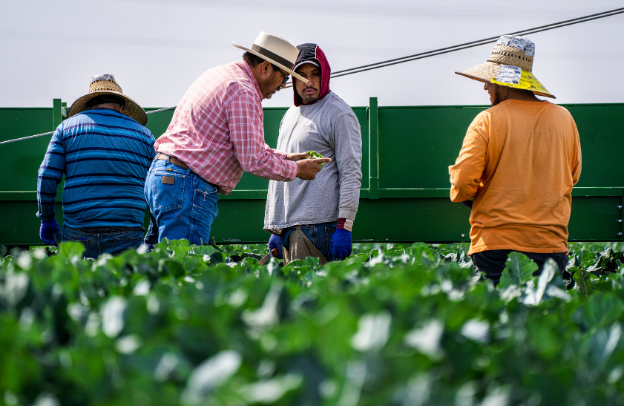How the African Diaspora Can Tap Into Africa’s Agricultural Potential for Job Creation and Food Security

Africa holds 60% of the world’s unused arable land, yet it still faces high food insecurity, unemployment, and poverty. Why hasn’t this massive agricultural potential been fully realized? The answer may lie with the African diaspora. Entrepreneurs abroad, with their skills, access to global markets, and strong ties to Africa, are in a unique position to turn this untapped resource into solutions for food security and job creation. Africa’s agricultural opportunities are vast. Could the diaspora be the key to unlocking Africa’s future?
Want to learn more about storytelling? Start by downloading the first chapter of The Storytelling Mastery.
Africa has the potential to become a global economic powerhouse, but its agricultural sector remains a ticking time bomb. The continent is home to vast, untapped land and resources, yet it continues to grapple with food insecurity, poverty, and underemployment. These challenges were highlighted at international forums such as the G20 summit in Hangzhou, China, where for the first time, industrialization in Africa was placed on the global agenda (World Economic Forum).
Similarly, the African Union’s Agenda 2063 emphasizes the urgent need for economic transformation. The world is beginning to recognize Africa’s potential, but the question remains: will the continent act swiftly enough to unlock its agricultural potential and avoid disaster?
To combat these challenges, Africa needs more than just financial aid or charity; it requires an entrepreneurial mindset capable of building sustainable agricultural enterprises.
This is where the African diaspora can play a crucial role. With the right investments, African entrepreneurs abroad can help tackle the continent’s food security crisis, create jobs, and drive economic growth. But the opportunities are not just humanitarian; they are also incredibly profitable.
Agriculture as Africa’s Greatest Untapped Industry
Africa is often labeled as the “breadbasket” of the world, with abundant resources to become a global agricultural leader. Yet, it accounts for only 4% of the global agricultural trade, even though it houses nearly 25% of the world’s arable land (FAO, 2019).
The gap between Africa’s agricultural potential and its current output is primarily due to inefficiencies in production, poor infrastructure, and the lack of access to modern farming techniques. In countries like Kenya, Nigeria, and Ghana, smallholder farmers still rely on traditional farming practices, which are less efficient and more vulnerable to climate change.
See also The Secret to Growing High-Yield Maize: Expert Tips and Tricks
However, the situation is rapidly changing. The African Union’s Comprehensive Africa Agriculture Development Program (CAADP) is working to increase agricultural investment, improve infrastructure, and expand market access.
The initiative aims to raise agricultural growth to 6% annually, which is projected to lift millions of people out of poverty by improving food security and stimulating rural development.
But to achieve this, Africa needs a new breed of entrepreneur—one that understands both the challenges of local farming and the potential of global agricultural innovations.
Why the African Diaspora Is Key to Unlocking Africa’s Agricultural Potential
The African diaspora is uniquely positioned to lead the charge in unlocking Africa’s agricultural potential. With over 33 million people of African descent living in the United States alone, according to Pew Research Center, and a growing presence across Europe and Asia, this global network has the financial resources, expertise, and influence needed to drive change in the agricultural sector.
We firmly believe that the African Diaspora holds the key to unlocking Africa’s agricultural potential. This is why Obehi Ewanfoh, founder of AClasses Academy and host of the Obehi Podcast, actively engages with hundreds of African professionals in the diaspora, encouraging them to invest in Africa’s economy—particularly within the agribusiness sector.
According to data from the United Nations on strengthening the developmental impact of remittances and diaspora finance in Africa, remittances to the continent increased from $67 billion in 2016 to $87 billion in 2019. Although they dropped by 4% in 2020 due to the COVID-19 pandemic, remittances rebounded in 2021, growing by 9% to reach $91 billion.
While remittances have primarily been directed toward consumer spending, there is now a growing movement to channel these funds into long-term, sustainable investments, particularly in sectors like agriculture.
Diaspora entrepreneurs bring with them a wealth of experience, access to global markets, and an understanding of international agricultural trends. They are also uniquely placed to bridge the gap between Africa and the world, fostering cross-border partnerships and facilitating technology transfer.
However, they must also understand the nuances of Africa’s agricultural sector, including the need for sustainable practices, localized solutions, and the development of local value chains.
Job Creation and the Need for Local Solutions
Agriculture in Africa is a major source of employment, with more than 60% of the population working in agriculture (World Bank, 2020). However, most of these jobs are low-skilled, seasonal, and precarious.
The agricultural sector’s capacity to generate sustainable employment has been hampered by outdated practices and a lack of investment. Yet, there is an enormous opportunity to turn this around.
See also 9 Simple Ways For African Diasporans To Make Extra Income Even With A Full-Time Job
By investing in modern farming techniques, agribusinesses, and agro-processing industries, the African diaspora can help generate millions of jobs across the continent.
For instance, the expansion of value-added sectors, such as food processing, packaging, and distribution, could create jobs for young people in rural and urban areas. The emergence of mobile agriculture solutions, such as m-Farm in Kenya, which helps farmers access real-time market prices via SMS, shows how technology can improve productivity and open new opportunities.
Entrepreneurs from the diaspora could play a pivotal role in scaling such solutions, offering both the expertise and funding necessary to turn small-scale projects into large-scale solutions.
Another avenue for job creation lies in agribusinesses focused on high-value crops, such as horticulture, organic farming, and aquaculture. Africa’s demand for fresh produce and processed foods is rapidly growing, and there is an opportunity for diaspora entrepreneurs to fill this gap by establishing businesses that process and export agricultural products.
These ventures would not only contribute to food security but also generate jobs along the value chain, from farmers to truck drivers to factory workers.
Case Studies of Successful Diaspora-Led Agricultural Initiatives
Several African diaspora entrepreneurs have already begun to make significant strides in Africa’s agricultural sector, creating both economic opportunities and solutions for food insecurity.
For example, the African Diaspora Network has highlighted initiatives like Twiga Foods, a Kenyan agritech company founded by two Kenyan-American entrepreneurs, which is modernizing the food distribution system by connecting farmers with retailers through a mobile platform.
By streamlining the supply chain, Twiga Foods has reduced food waste and ensured farmers receive fair prices, all while creating thousands of jobs.
In Ghana, the diaspora-led company Agro Mindset has developed a successful agribusiness training program that teaches young people about modern farming techniques, sustainable agriculture, and agribusiness management.
Talking about their academy, they wrote that they offer “free agriculture educator program, which is challenging assumptions, transforming usual ways of practising agriculture, and introducing youth to unexpected ways of thinking to master tomorrow’s agriculture today.”
This initiative is equipping the next generation of African farmers with the knowledge and tools they need to succeed in a rapidly changing agricultural landscape.
Another notable example is Tingo Inc., a diaspora-backed Nigerian agribusiness company that has built an innovative ecosystem for farmers. Formerly known as Tingo Inc., Tingo Group, Inc. is a publicly traded fintech and agri-fintech conglomerate that originated in Nigeria and now operates across Africa, Southeast Asia, and the Middle East.
While it is reported that Tingo Group, Inc has had tough legal cases in the United States, the initiative is certainly worth noting. The company’s platform enables farmers to access a variety of financial services, including crop insurance and low-interest loans.
It also provides a marketplace for farmers to sell their produce directly to consumers, cutting out intermediaries and boosting their income.
The Role of Science and Technology in Advancing Agriculture in Africa
One of the greatest challenges facing African agriculture is the vulnerability to climate change, which affects crops and food production. In recent years, however, there has been a surge in agricultural innovation across the continent, with many entrepreneurs and researchers exploring climate-resilient crops, precision farming techniques, and innovative irrigation methods.
For example, scientists from the University of Nebraska-Lincoln have developed RNA-based methods for more rapidly identifying genes that improve crops’ resistance to heat and drought, such as heat-tolerant corn varieties.
African diaspora entrepreneurs can help accelerate the adoption of these innovations by investing in agritech startups, supporting research and development, and facilitating technology transfer.
The African Union’s Agenda 2063 also highlights the need for science and technology to drive sustainable agricultural growth. By collaborating with local governments and research institutions, diaspora entrepreneurs can help ensure that Africa benefits from the latest agricultural technologies.
In countries like Kenya, Nigeria, and South Africa, mobile technology is revolutionizing farming. Platforms like FarmCrowdy in Nigeria connect farmers to investors, providing capital for projects ranging from poultry to vegetable farming.
Diaspora entrepreneurs can contribute to the growth of these platforms by bringing in their knowledge of global agricultural trends and offering mentorship to local founders.
How Diaspora Entrepreneurs Can Start Investing in Africa’s Agricultural Future
For those in the diaspora who are eager to invest in Africa’s agricultural sector, the opportunities are abundant.
But it’s important to understand the challenges involved, including navigating regulatory environments, overcoming infrastructure barriers, and ensuring that investments are sustainable.
- Targeting High-Value Sectors: Some of the most promising sectors for investment include agribusinesses focused on food processing, agro-tech, and organic farming. Entrepreneurs should focus on areas where the demand is growing—such as sustainable packaging, organic farming, and precision farming technologies.
- Building Partnerships: One of the best ways to mitigate risks and maximize impact is by partnering with local stakeholders—governments, research institutions, NGOs, and local entrepreneurs. These partnerships help build trust, improve access to resources, and create solutions that are tailored to local conditions.
- Creating Sustainable Business Models: To achieve long-term success, diaspora entrepreneurs must focus on creating sustainable business models that prioritize environmental sustainability, equitable economic development, and local community empowerment.
Conclusion: A Call to Action for Diaspora Entrepreneurs
The opportunities for the African diaspora to invest in Africa’s agricultural sector are vast, and the need for action has never been greater. By investing in agriculture, diaspora entrepreneurs can contribute to solving Africa’s food insecurity crisis, create millions of jobs, and generate long-term economic growth.
The key to success lies in identifying the right opportunities, partnering with local communities, and bringing innovations that can transform the agricultural landscape. The time to invest in Africa’s agricultural future is now, and the African diaspora has a crucial role to play in making this vision a reality.
Want to learn more about storytelling? Start by downloading the first chapter of The Storytelling Mastery.





